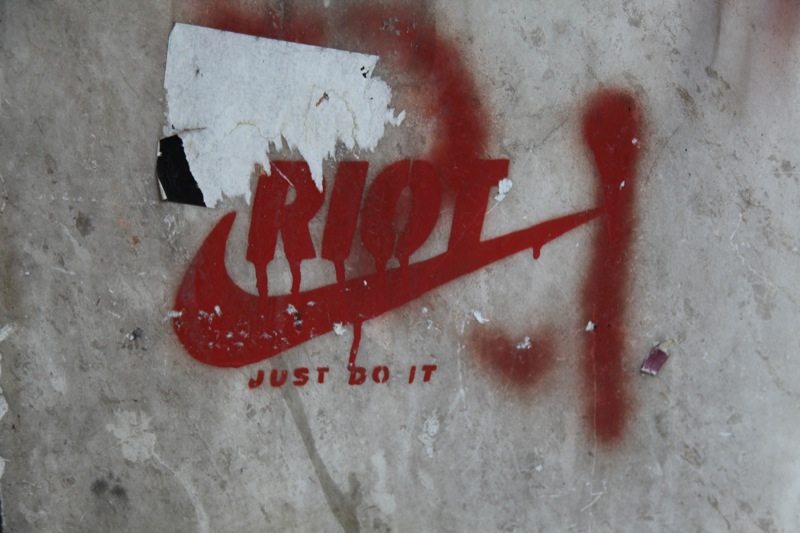This quote is often attributed to Vladimir Lenin: “The best way to control the opposition is to lead it ourselves.” He speaks of puppet movements and useful idiots. (The latter term is also Leninese, as it happens.) There is a less-popular companion statement, which seems to have bubbled up from the frustrated id of anonymous extremists:

“All opposition is controlled opposition.” Made with Buffer’s Pablo.
The idea behind this maxim is that the state allows a certain amount of opposition to exist, and often infiltrates protest movements or steers them from afar. (Anarchist groups have developed what they call “security culture” as a way to guard against this.)
Dissidents are permitted to bleed off tension without actually endangering the regime. People with the savvy and energy to organize real trouble are swallowed up by doomed groups fighting for doomed causes.
For example, the “controlled opposition” interpretation of the #NoDAPL protests would be: The activists feel like they’ve won a victory, but the pipeline will just be slightly rerouted, built eventually, and imperil the groundwater in due time. The tribe’s supposed success serves to placate the public. Behind the scenes, the state and its capitalist cronies do whatever they want.
Some observers interpret mainstream political parties as controlled opposition en masse. Show contests orchestrated by the deep state in order to keep the voters occupied. Wars are engineered by corporate interests. According to this paradigm, we don’t just swoop in and crush ISIS because the military-industrial complex thrives on hot wars.
I think “all opposition is controlled opposition” is a bit like “what doesn’t kill you makes you stronger”. Both sayings are nonsense when interpreted literally, but they’re catchy ways to encapsulate an emotionally compelling idea.
Yes, clearly controlled opposition does exist. But genuinely disruptive fringe groups also exist. The English government didn’t benefit from the IRA, and the French Revolution managed to behead a couple of monarchs (plus many unfortunate members of the aristocracy). Mao Zedong’s rise to power was not controlled opposition.
In general, I think people tend to see conspiracies where there are actually incentive structures. Of course the state has to strike a balance between crushing dissent entirely and allowing it to enter society’s memetic bloodstream. If the politicians and bureaucrats err too far in either direction, the state loses its power.
Header photo via the euskadi 11.



